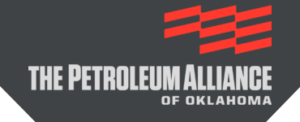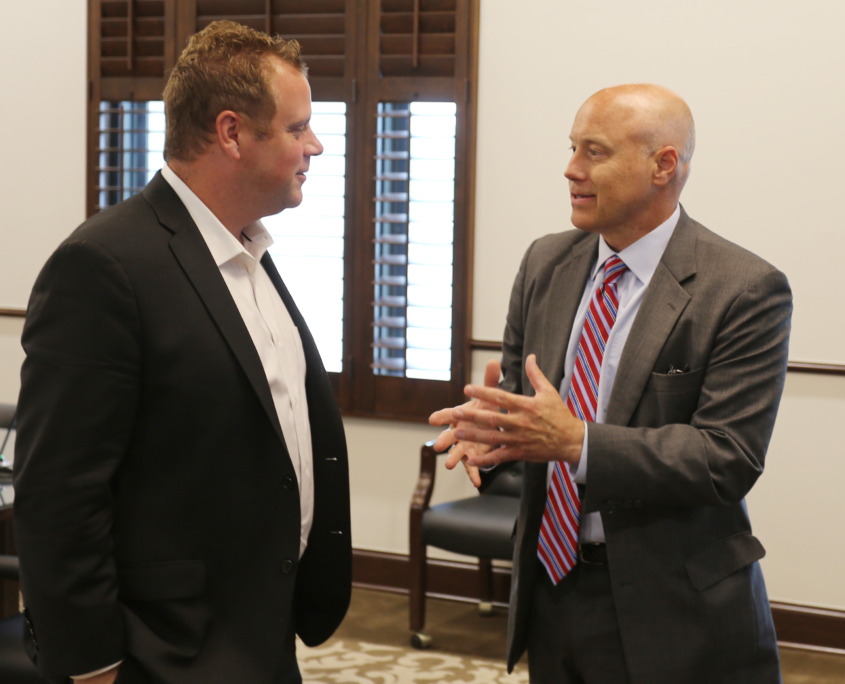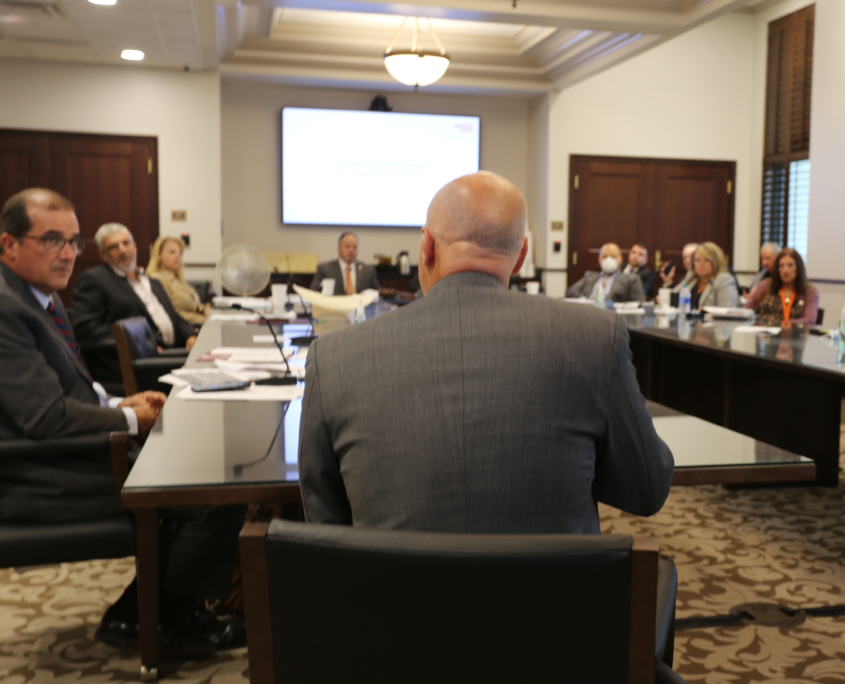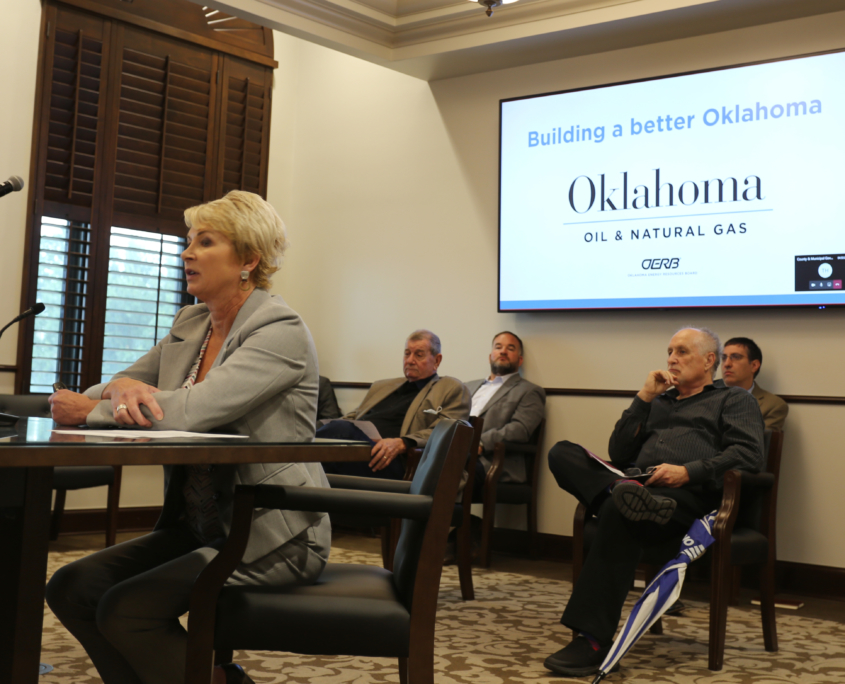[av_post_meta av_uid=’av-8xupd’]
Oklahoma Rep. Brad Boles was clear from the start.
As chairman of the Oklahoma House Committee on County & Municipal Government, the state representative from southern Oklahoma told participants Wednesday’s interim study was not an effort to increase taxes on the oil and natural gas industry.
Instead, Boles said, it was effort to ensure that all effected parties could begin a conversation to address concern among suburban communities where oil and natural gas activity has increased in recent years.
Focused on examining options for cities and town to secure funding for roadways impacted by increased oil and natural gas activity, the interim study gave officials from those communities, the Oklahoma Municipal League and the oil and natural gas industry the opportunity to weigh in on the subject.
“This is not a study to see if we can raise the gross production tax,” said Boles, R-Marlow, who runs a manufacturing company serving the oilfield. “We want to examine the current processes we have in the state … and see what options we have in getting funding back to the municipal level.”
Leading the charge for the oil and gas industry was Petroleum Alliance President Brook A. Simmons, who told study participants that oil and natural gas producers in the state could not weather the burden of further tax increases.
“Oklahoma is overly reliant on our industry for its tax receipts,” Simmons said. “Every time the law changes at any level of government, the future changes. Our members cannot afford to pay more in taxes and fees – and it doesn’t matter if the company has 11 employees or 1,100…
“Our members want to be good neighbors. We pay more than our fair share to roads and bridges and other state priorities. Sometimes being a good neighbor is costly. When it becomes too costly, our members must move on. They must slow or stop investment in Oklahoma.”
While the study focused on the tri-city communities of Newcastle, Blanchard and Tuttle, Simmons pointed out that a portion of gross production taxes generated from production in the counties those communities call home is returned to the county for road repair and construction. For McClain County, that amounted to $2.5 million in fiscal year 2020. For Grady County, it totaled $9.3 million. In total, approximately $90 million is returned to counties across the state each year.
While that money is returned to counties, it is not shared with cities. For Tuttle Mayor Aaron McLeroy, that is where the frustration lies. His hometown has a $200,000 per year budget for road repair but an estimated $3.5 million in repairs to make. He said this is due, in part, to traffic created by the more than 100 oil and natural gas wells located within city limits.
“If the goal here is to help cities with this tremendous financial burden, the funds are already there,” said Oklahoma Municipal League Executive Director Mike Fina. “What we’re asking from the state is to find a better way to allocate those dollars.”
The Petroleum Alliance of Oklahoma will continue to monitor the effort and ensure that members’ voices are heard.








